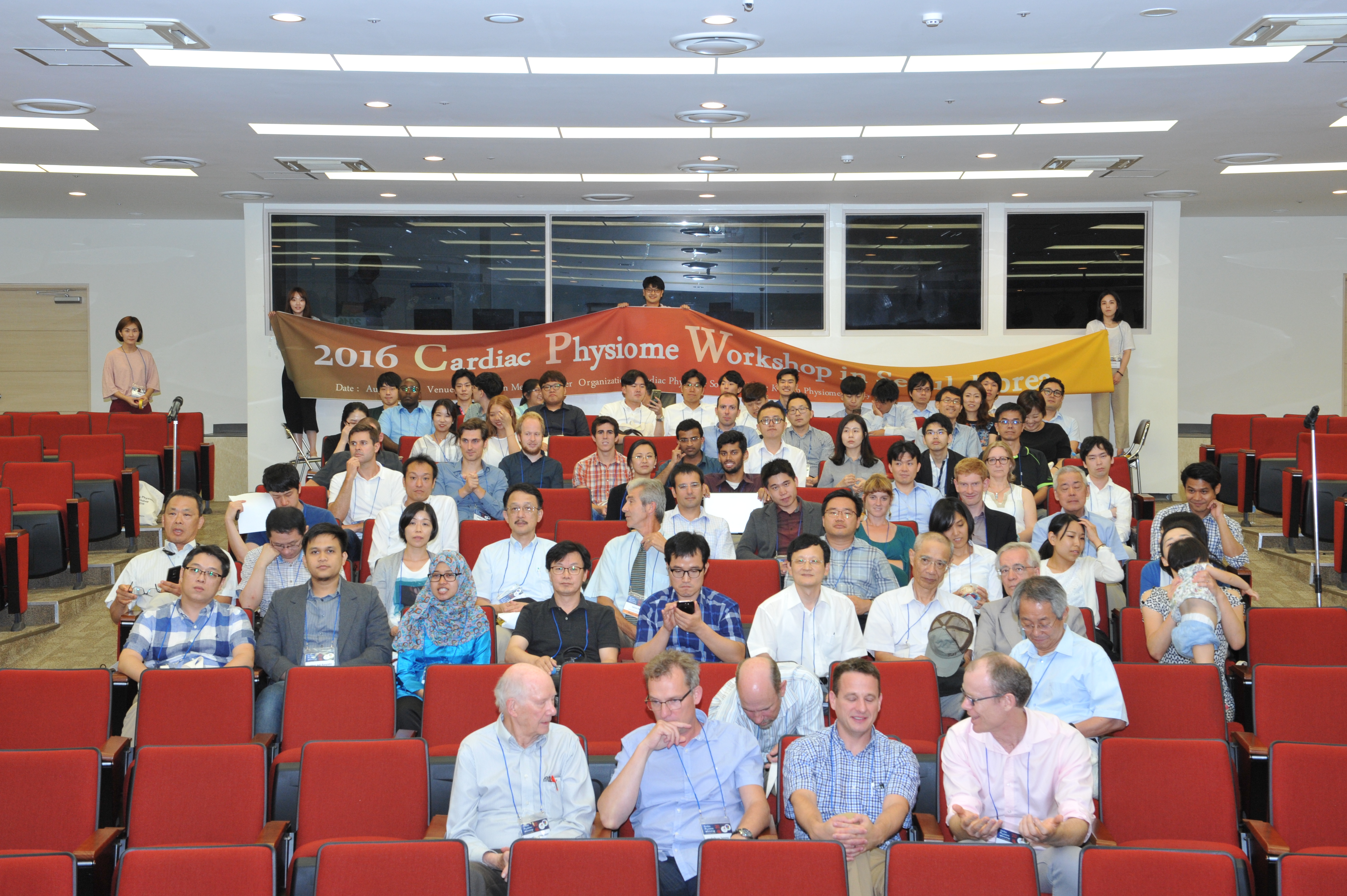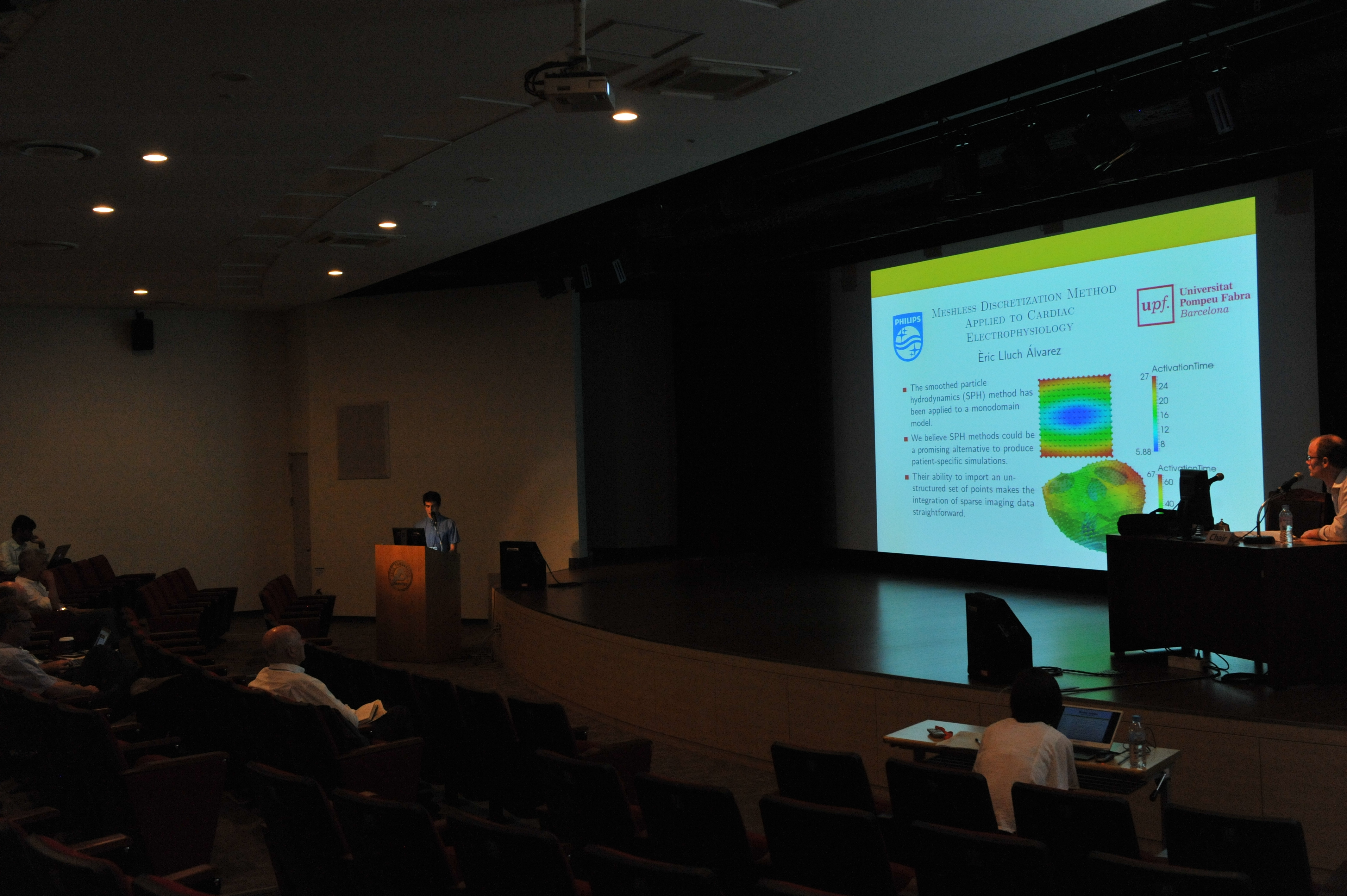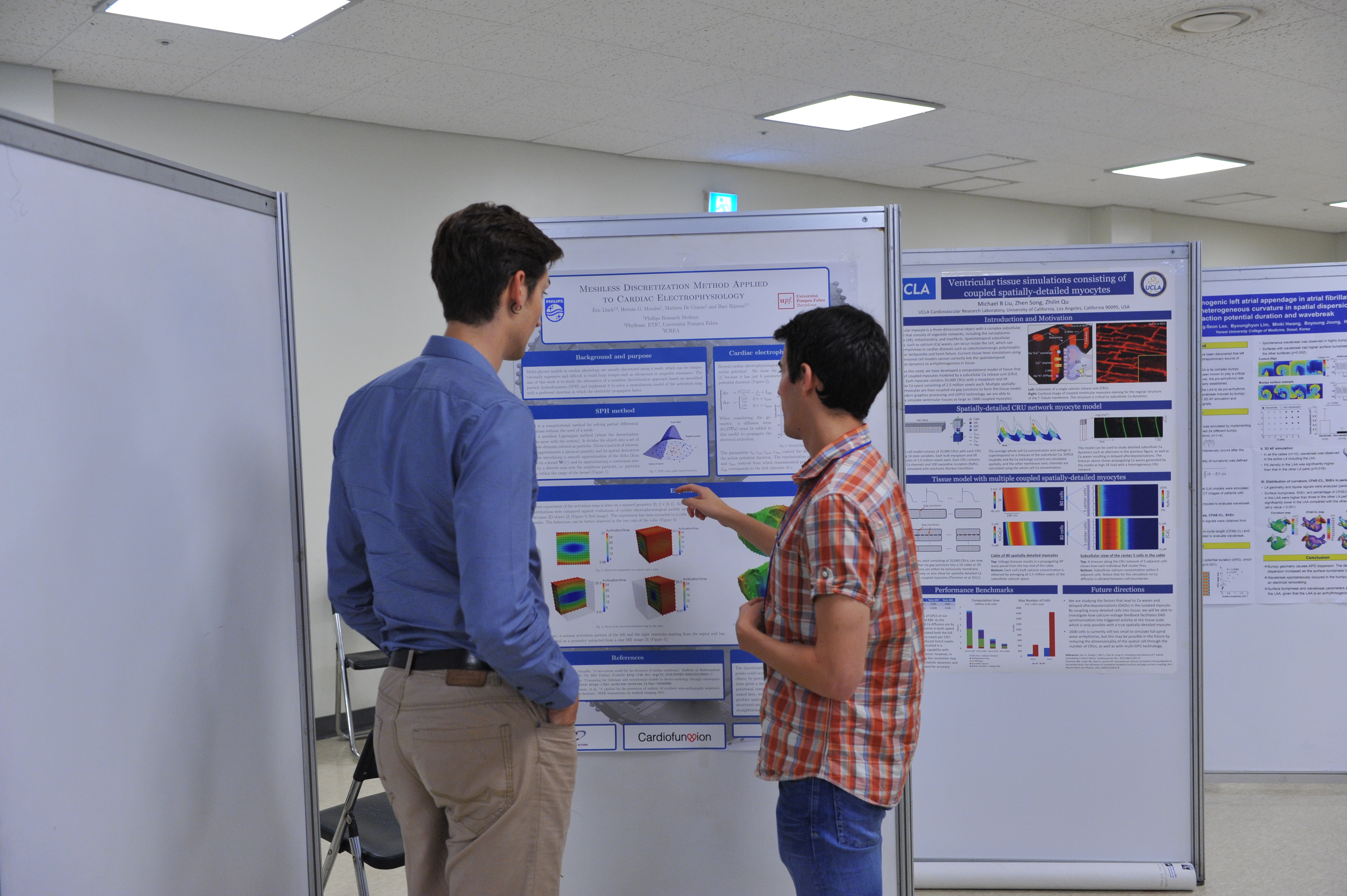Cardiac Physiome Society 2016 Workshop - Korea
Cardiac Physiome Society 2016 Workshop - Korea
The Workshop of the Cardiac Physiome Society 2016 took place in Korea, August 23rd–26th, and CardioFunXion didn’t miss it! As described in the webpage it is to promote multi-scale simulation and analysis of cardiac physiology in health and disease, spanning the full breadth of cardiac functions and all scales of biological organization from molecule to patient. The Society aims to encourage and facilitate international collaboration, cooperation, sharing, exchange, and interoperability in basic, translational and clinical research data, models and technology development by various means including the organization of an annual Cardiac Physiome Workshop.

The experience was really good! Several electrophysiological and electromechanical multi-scale models were presented during the four days of the conference with good ideas and promissing results.
New ideas for personalizing the material properties of the heart tissue were presented by the group of UCLA, which manage to have a very nice deformation of an ellipsoidal heart following the fiber orientation. A way of personalizing PDEs to patients was presented by the SIMULA group using PDE constrained optimization. Amazing results of multi-scale, multi-physics simulations were presented by the japanese group of Professor Seiryo Suguiura. He mentioned that the main drawback of their current model is the time it takes to run, which makes it impractical for clinical applications, lasting more than one day with many cores. He also mentioned that most of the time is wasted in the mesh generation.
The group of KCL presented a biophysical model of human cardiac contraction and a CRT outcome prediction through modelling were they personalized their electromechanical model fromt he geometry given by cine MRI images using the Philips tool for the segmentation.
Èric Lluch Álvarez presented a poster about a "Meshless Discretization Method Applied to Cardiac Electrophysiology".

It was very useful to get feedback from the members of the Cardiac Phyisiome Society, since they have more experience in modelling and simulations and they recommended some techniques to validate the results and keep encouraging to test this meshless method to try to achieve new advantages in the implementation of the models.

The members of UCLA were particularly interested in being updated with the new results of the application of the meshless discretization in cardiac mechanics offering to keep us updated with their personalization of the constutitive equations and the heart material.
By participating in the Cardiac Physiome Society event you become a membership on it so we were again invited to the next Cardiac Physiome Society events which will be in Toronto and Maastricht!
